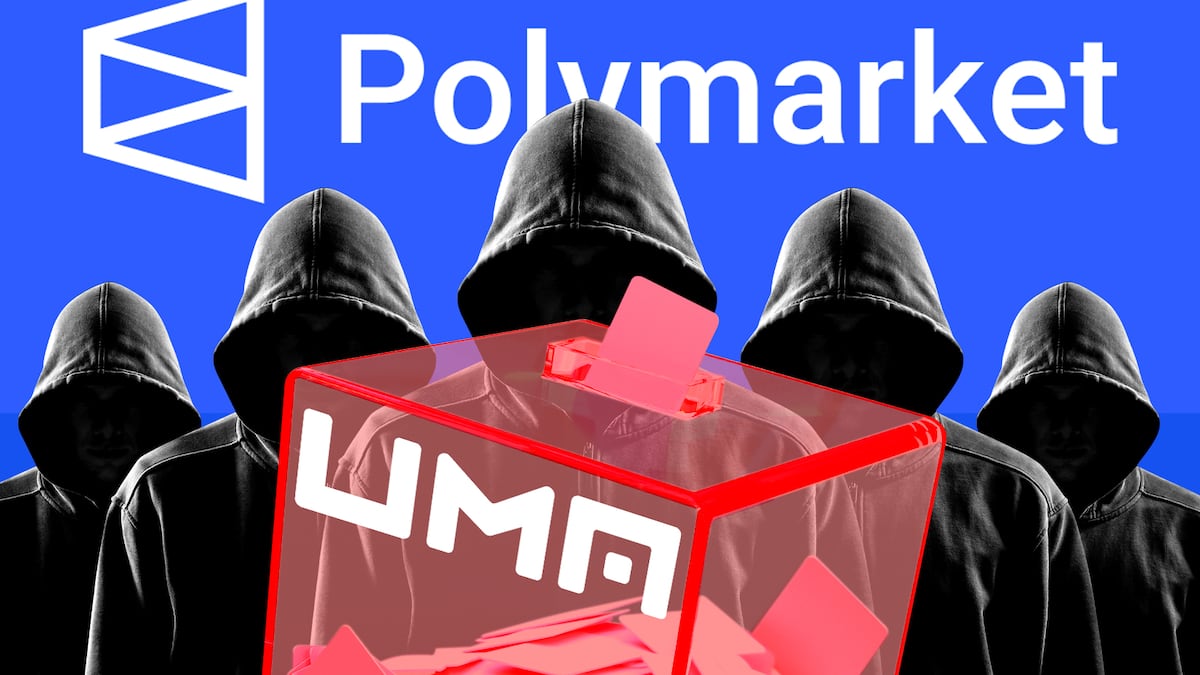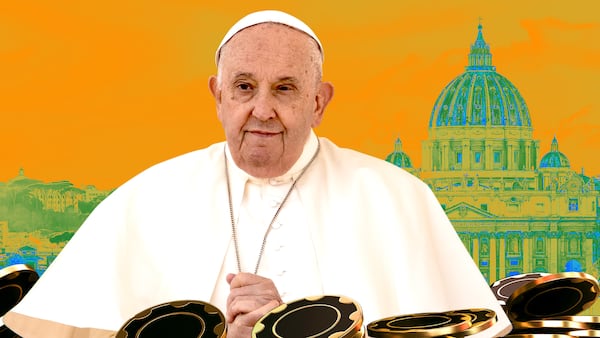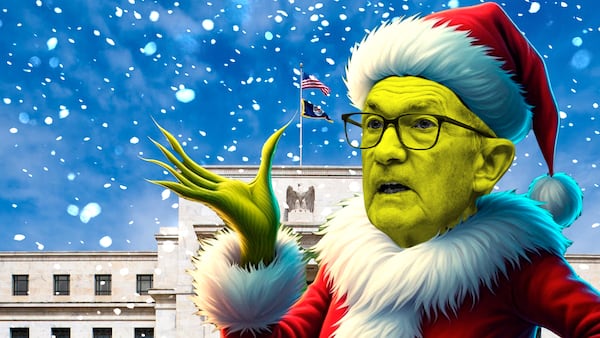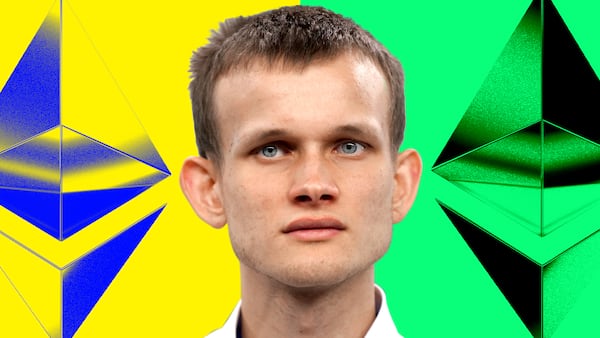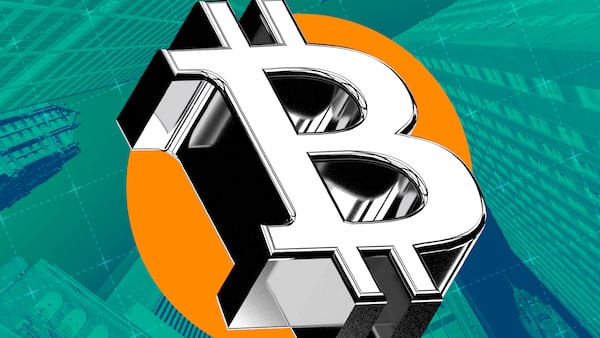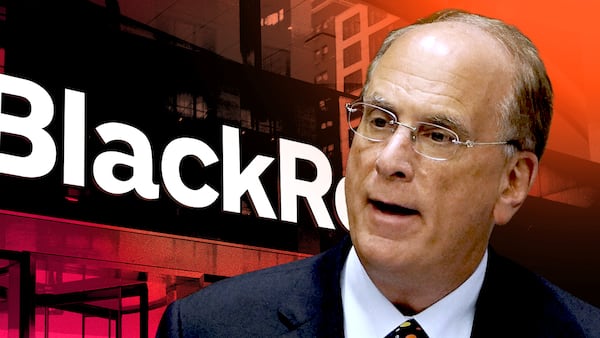- Polymarket bettors raise the alarm over alleged manipulation.
- Those accused deny they influence market outcomes.
- Previous predication markets have produced verifiably false results.
Polymarket, the crypto-based prediction market platform, has long been lauded for its accuracy in anticipating event outcomes.
Research shows that the platform’s markets, which are swayed by bettors putting real money on the line, often generate odds that are closer to reality than other sources.
Yet four people who participate in Polymarket’s prediction markets told DL News that a number of high-rolling bettors appear to be working together to swing the outcomes in their favour.
DL News found the sources credible because they all told the same story, did not appear to be working together, and were not financially motivated to speak out about what they knew.
They declined to identify themselves publicly to preserve their privacy and prevent online attacks.
The claims come to light just as Polymarket is on the verge of closing a blockbuster $200 million funding round led by Peter Thiel’s Founders Fund, which is expected to bestow the firm behind the platform with unicorn status.
The bettors allegedly target prediction markets where the outcomes are more open to interpretation and could be disputed, and where the result could go either way and not be wrong, one person told DL News.
For example, the recent markets that asked whether Ukrainian President Volodomyr Zelenskyy would wear a suit publicly before a certain date, the person said. DL News could not confirm if the bettors in question were involved in influencing the outcomes of these particular markets, however.
When a market’s proposed result goes against certain bets, the tipsters claim some of those affected coordinate to dispute the result and push a different outcome. Other times they propose market outcomes that align with their bets.
They claim they do this by posting in the prediction market’s comments section, in Discord servers, and on social media, often using multiple accounts to give the impression of widespread consensus behind the outcome they bet on, multiple people said.
‘Urban legend’
The sources claim two people who have been involved in such allegedly coordinated activity are Abhishek Kylasa, better known online as aenews, and another pseudonymous bettor who goes by the alias 50-Pence.
In conversations with DL News, Kylasa and 50-Pence were adamant they do not coordinate to influence market outcomes.
Kylasa called the idea an “urban legend that has become larger than life.”
The pair denied using multiple Discord and Polymarket accounts to influence opinion, and accused other groups of coordinating to influence outcomes.
Polymarket’s Terms of Use specifically prohibit users from engaging in manipulation, although the terms do not define what constitutes manipulation.
Still, bettors have accused Polymarket of turning a blind eye to manipulation for months.
All the while, the platform has surged in popularity, with 236,000 active monthly users, according to Token Terminal.
In June, Polymarket inked a deal with X, becoming the social media site’s official prediction market partner.
Polymarket did not respond to a request for comment.
‘Treated with suspicion’
Several bettors who say they lost money to these alleged tactics told DL News they believe they stem from an invite-only channel on Discord.
They say the channel, which consists of around 50 members, is a hub for coordination.
DL News could not independently verify these claims.
But A DL News analysis did find that wallets belonging to prominent members of the channel won thousands of dollars on Polymarket prediction markets where the results were disputed, either against or in favour of the originally proposed outcomes. Additionally, those members rarely lost money on wagers placed in those markets.
Kylasa, for example, was in the top 10 winners in dollar terms on seven recently disputed prediction markets, onchain records show. Kylasa denied any wrongdoing and said the Poly Alpha Discord is only used for trading discussions, and that members regularly disagree on prediction market outcomes.
Polymarket uses a protocol called UMA to manage prediction market disputes. Hart Lambur, CEO of UMA, told DL News that the venture takes extra care to scrutinise prediction markets with equivocal outcomes.
“Individuals who hold large Polymarket positions in ambiguous markets are generally treated with suspicion,” he said.
Handling disputes
UMA decides prediction market disputes by having holders of the UMA token vote on them. The idea is that collective wisdom is the best way to get resolution.
Polymarket’s Terms of Use say it is not responsible for the outcomes of prediction market disputes, and that disputes are resolved through UMA.
Multiple people who spoke to DL News said UMA’s system is open to exploitation and that market dispute resolutions can be swayed.
You just have to push your arguments at the right time, one person told DL News. “Momentum when it matters, when UMA votes. Then later everybody else that disagrees posts their arguments, but it is too late.”
Chat logs viewed by DL News show an UMA tokenholder saying that prominent Polymarket bettors frequently ask them to vote in line with their bets in dispute outcomes.
Kylasa and 50-Pence denied messaging UMA tokenholders.
UMA’s Lambur said his team is not aware of individual participants directly reaching out to UMA holders.
He said his team is aware that there is increasingly more “spam” in the UMA comments section for prediction markets, and that they are working on solutions.
Warped incentives
The problem, according to many, are the incentives the UMA system creates for tokenholders.
When UMA holders vote on disputes their choices are hidden, and are only revealed after polling ends. If the majority of tokenholders vote that A is true, those who said B is true face a financial penalty, which is a way to discourage voting for obvious untruths.
Several people DL News spoke to said the system discourages tokenholders from voting for what they actually believe is the truth. Instead, the system encourages them to vote the same way they anticipate others to vote, protecting themselves from penalties.
So when a group pushes one proposed resolution and it appears to reach consensus, UMA tokenholders often vote accordingly to avoid getting caught out, they said.
A screenshot of a conversation viewed by DL News shows an UMA tokenholder admitting that they personally believed a market should have resolved a different way to what they had voted for.
In 26 out of the last 30 disputed markets, onchain data shows UMA tokenholders voted with a 95% or higher majority consensus in the winning outcome.
Lambur maintains that the rules of the system do encourage UMA tokenholders to vote for what they believe is the truth.
“UMA is built and designed to deliver the ‘best’ outcome in an adversarial environment,” he said. “UMA voter participants expect that they are walking into a den of snakes and the game theory of the system encourages participants to vote their own beliefs.”
False positive
Yet there are well-known instances where UMA tokenholders declared something to be true when evidence showed it to be false.
One false result happened in a dispute over a market that asked bettors if the US and Ukraine would sign a mineral mining deal before the end of March.
Despite no such deal being signed, the market was settled as “Yes,” triggering a backlash from those on the other side of the bet.
One person with direct knowledge of the matter told DL News someone deliberately proposed the “Yes” resolution on a weekend when there were fewer people paying attention.
People then allegedly mass-posted in the market’s evidence rationale thread in the UMA Discord server, encouraging UMA tokenholders to resolve the market to Yes after another bettor disputed the proposed outcome. UMA tokenholders look to such threads when deciding how to settle markets.
Tokenholders then settled the market’s outcome as Yes through a vote.
Kylasa claims it was 50-Pence who pushed the false result, and denied involvement. Another source with direct knowledge of the incident also told DL News that 50-Pence was behind the mineral deal result.
The crypto wallet used to propose the mineral deal market result, alleged to belong to 50-Pence by Kylasa, had bet $200,000 on the Yes outcome of the market prior to its resolution, according to an investigation by a pseudonymous crypto sleuth called Mr Ozi.
In a conversation with DL News, 50-Pence admitted that he proposed the Yes outcome for the mineral deal market.
“The Treasury Secretary of the United States was on TV saying, ‘we have a deal tomorrow.’” he said. “Because the deal fell apart later, does not mean that an announcement of a deal had not occurred.”
“I do not win because I cheat,” he said.
While coordinated groups allegedly exploit UMA’s market resolution system, many other Polymarket bettors, particularly those who are new to the platform, are probably unaware of what’s going on.
When false outcomes get affirmed, like with the minerals deal market, it’s these newer, less-experienced bettors who get burned.
“By the time they know it is too late,” one source said.
Update, July 3: A previous version of this story stated that people in the UMA Discord server mass-posted that a US-Ukraine minerals deal had been signed. It has been updated to say that the people mass-posted encouraging UMA tokenholders to resolve the market to Yes.
Tim Craig is DL News’ Edinburgh-based DeFi correspondent. Reach out to him with tips at tim@dlnews.com.


